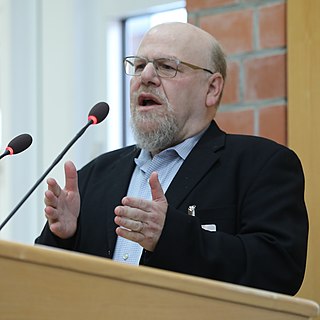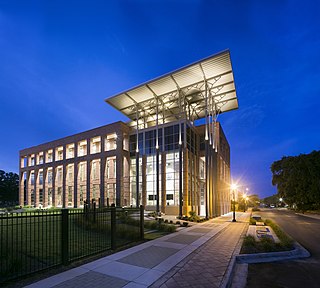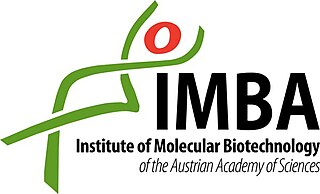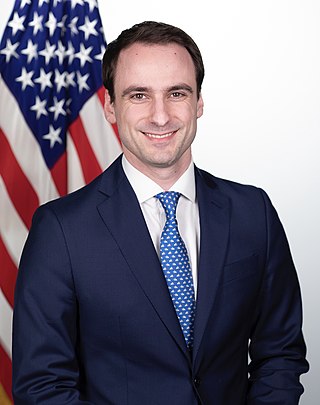
Deborah Louise McGuinness is an American computer scientist and researcher at Rensselaer Polytechnic Institute (RPI). She is a professor of Computer, Cognitive and Web Sciences, Industrial and Systems Engineering, and an endowed chair in the Tetherless World Constellation, a multidisciplinary research institution within RPI that focuses on the study of theories, methods and applications of the World Wide Web. Her fields of expertise include interdisciplinary data integration, artificial intelligence, specifically in knowledge representation and reasoning, description logics, the semantic web, explanation, and trust.

James Alexander Hendler is an artificial intelligence researcher at Rensselaer Polytechnic Institute, United States, and one of the originators of the Semantic Web. He is a Fellow of the National Academy of Public Administration.

Barry Smith is an academic working in the field of Applied Ontology. Smith is the author of more than 700 scientific publications, including 15 authored or edited books. He is one of the most widely cited living philosophers.
Vasant G. Honavar is an Indian-American computer scientist, and artificial intelligence, machine learning, big data, data science, causal inference, knowledge representation, bioinformatics and health informatics researcher and professor.

The German Research Center for Artificial Intelligence, DFKI was founded in 1988 as a non-profit public-private partnership. It has research facilities in Kaiserslautern, Saarbrücken, Bremen, Oldenburg, and Osnabrück, laboratories in Berlin, Darmstadt, and Lübeck, and a branch office in Trier. In the field of innovative commercial software technology using artificial intelligence, DFKI is the leading research center in Germany.

The Research Institute for Advanced Computer Science (RIACS) was founded June 1, 1983 as a joint collaboration between the Universities Space Research Association (USRA) and the NASA Ames Research Center. The Institute was created to conduct basic and applied research in computer science, covering a broad range of research topics of interest to the aerospace community including supercomputing, computational fluid dynamics, computational chemistry, high performance networking, and artificial intelligence.

The Austrian Academy of Sciences is a legal entity under the special protection of the Republic of Austria. According to the statutes of the Academy its mission is to promote the sciences and humanities in every respect and in every field, particularly in fundamental research.

The School of Medical Science and Technology (SMST) is an educational and research institute affiliated to the Indian Institute of Technology, Kharagpur, India. Founded in 2001, the School of Medical Science and Technology brings together doctors, scientists and engineers to work collaboratively on projects for better healthcare.

The Florida Institute for Human & Machine Cognition (IHMC) is a not-for-profit research institute of the State University System of Florida, with locations in Pensacola and Ocala, Florida. IHMC scientists and engineers investigate a broad range of topics related to building systems aimed at amplifying and extending human cognitive, physical and perceptual capacities.

The Institute of Molecular Biotechnology (IMBA) is an independent biomedical research organisation founded by the Austrian Academy of Sciences in cooperation with the pharmaceutical company Boehringer Ingelheim. The institute employs around 250 people from over 40 countries, who perform basic research. IMBA is located at the Vienna BioCenter (VBC) and shares facilities and scientific training programs with the Gregor Mendel Institute of Molecular Plant Biology (GMI) of the Austrian Academy of Sciences and the Research Institute of Molecular Pathology (IMP), the basic research center of Boehringer Ingelheim.

Jason H. Moore is a translational bioinformatics scientist, biomedical informatician, and human geneticist, the Edward Rose Professor of Informatics and Director of the Institute for Biomedical Informatics at the Perelman School of Medicine at the University of Pennsylvania, where he is also Senior Associate Dean for Informatics and Director of the Division of Informatics in the Department of Biostatistics, Epidemiology, and Informatics.
Mark Stephen Fox is a Canadian computer scientist, Professor of Industrial Engineering and Distinguished Professor of Urban Systems Engineering at the University of Toronto, known for the development of Constraint Directed Scheduling in the 1980s and the TOVE Project to develop an ontological framework for enterprise modeling and enterprise integration in the 1990s.

Barbara J. Grosz CorrFRSE is an American computer scientist and Higgins Professor of Natural Sciences at Harvard University. She has made seminal contributions to the fields of natural language processing and multi-agent systems. With Alison Simmons, she is co-founder of the Embedded EthiCS programme at Harvard, which embeds ethics lessons into computer science courses.

The Vienna BioCenter is a cluster of life science research institutes and biotechnology companies located in the 3rd municipal District of Vienna, Austria. It grew around the Research Institute of Molecular Pathology (IMP), which opened in 1988. The entities at the Vienna BioCenter employ more than 2,000 people, including 600 students.

Michael John Kotsakas Kratsios is an American business executive and government official. He served as the fourth Chief Technology Officer of the United States at the White House Office of Science and Technology Policy. In this role, Kratsios served as President Donald Trump's top technology advisor. From July 10, 2020 to January 20, 2021, Kratsios was also the Acting Under Secretary of Defense for Research and Engineering.

The Complexity Science Hub (CSH) is an independent research institute based in Vienna. It focuses on the study of complex systems, aiming to contribute scientific insights to address the major challenges of our time.

Anna Goldenberg is a Russian-born computer scientist and a full professor at University of Toronto's Department of Computer Science and the Department of Statistics, a senior scientist at the Hospital for Sick Children's Research Institute and the Associate Research Director for health at the Vector Institute for Artificial Intelligence. She is the first chair in biomedical informatics and artificial intelligence at the Hospital for Sick Children.
Marzyeh Ghassemi is currently a professor at MIT, leading the Healthy ML lab which develops robust machine-learning algorithms, and works to understand how such models can best inform and improve health-care decisions. She was formerly an assistant professor at the University of Toronto's Department of Computer Science and Faculty of Medicine, holding a Canada CIFAR Artificial Intelligence (AI) chair and Canada Research Chair in machine learning for health.

Michael Bronstein is an Israeli computer scientist and entrepreneur. He is a computer science professor at the University of Oxford and scientific director of Aithyra Institute at the Vienna Biocenter in Austria.

The Technology Innovation Institute (TII) is an Abu Dhabi government funded research institution that operates in the areas of artificial intelligence, quantum computing, autonomous robotics, cryptography, advanced materials, digital science, directed energy, secure systems, and more recently also: biotechnology, renewable and sustainable energy, and propulsion and space. The institute is a part of the Abu Dhabi Government’s Advanced Technology Research Council (ATRC).
















